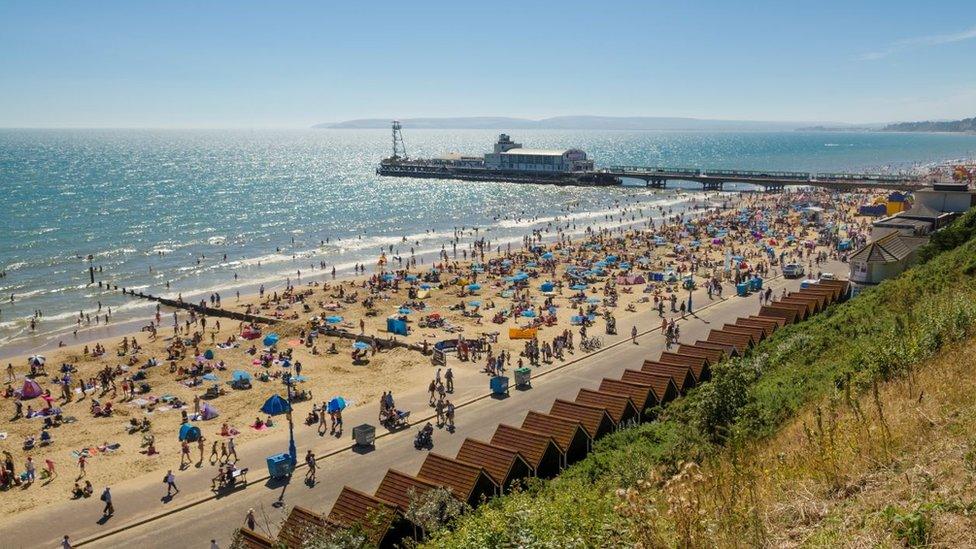Spirit of Thatcherism will help North of England, Gove says
- Published
- comments
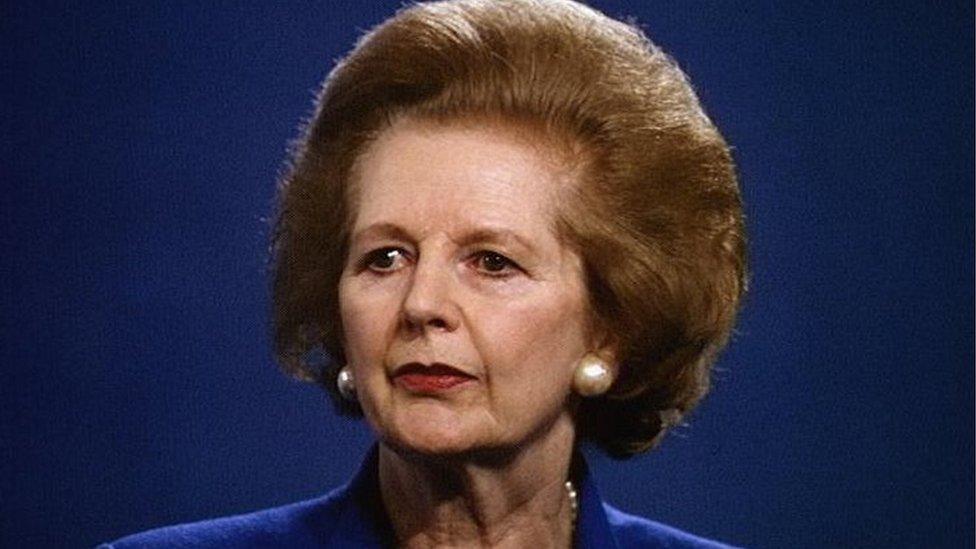
Mr Gove said Mrs Thatcher's style of "active government" was inspirational
Michael Gove has told the North of England's political leaders he will harness the "spirit" of Thatcherism to raise living standards in the region.
The levelling up secretary told a conference the former prime minister was an inspiration for the policy.
His speech followed Northern leaders' call to enshrine levelling up in law.
Shadow Levelling Up Secretary Lisa Nandy said Mr Gove's comments were "extraordinary after the devastation of the Thatcher years on the North".
Mr Gove was speaking at the Convention of the North, a major gathering of political and business leaders in Manchester, which included the Labour mayors of Greater Manchester, South Yorkshire, West Yorkshire, Liverpool City Region and North of Tyne.
He said the "active" government of Conservative Prime Minister Margaret Thatcher and her 1980s transformation of the London docklands was an inspiration for the levelling up plan to narrow economic and social disparities between the North and South of England.
'Head on'
He said the "spirit" of Thatcherism would help close the gap on the social and economic disparities between the regions and that failure to deal with them would lead to more welfare dependency, social problems and pressure on the NHS and the public purse.
"When the Thatcher government took office in 1979, London's docklands were a derelict economic desert," he said.
"The original vision for regeneration of the area, from the Treasury of the time, was simple: just cut taxes and deregulate and a thousand flowers will bloom in the dusty and contaminated soil of the docklands."
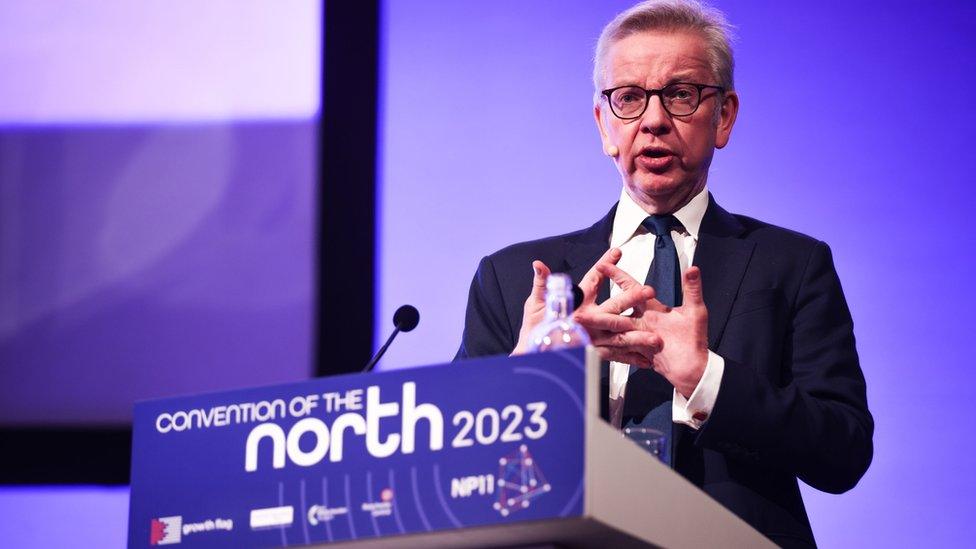
Mr Gove said the reforms were changing "the shape and nature of government in England itself"
Mr Gove said Mrs Thatcher helped set up deeper government intervention through the London Docklands Development Corporation, bringing jobs and housing and transforming that area of the capital.
"Government created the environment, the private sector created the jobs," he said.
"London Docklands today is an economic success story, one of the most signal successes we owe to Mrs Thatcher's government, and it is that spirit that animates our levelling up policies: active government."
His comments came after a report, external by the Institute for Public Policy Research (IPPR) said the North of England receives some of the lowest levels of investment for an advanced economy.
He added that his Levelling Up White Paper, which was released in 2022, aimed to meet the challenges "head on" and spread growth and prosperity across the whole of the UK.
"We are reforming the shape and nature of government in England itself, redistributing power and influence within England to strengthen cities and communities outside London, with the North benefiting most of all," he said.
'Not on our side'
Margaret Thatcher is a divisive figure in the North of England, with many former mining communities blaming her policies for their demise, and few politicians have attracted such strength of feeling, both for and against.
To her detractors, she was the politician who put the free market above all else and who was willing to allow others to pay the price for her policies in terms of rising unemployment and social unrest, but her supporters hail her for rolling back the frontiers of an overburdening state, reducing the influence of powerful trades union leaders and restoring Britain's standing in the world.
Ms Nandy told the convention the UK was in a "national malaise" and had a "broken" political system which had to "change or die".
She said the policy's "begging bowl" system of bidding needed to change and promised that under any future Labour government, there would be a significant expansion of devolution, with local authorities deciding how government money was spent and town halls having powers over housing, transport, energy, childcare, skills, employment support and training.
Speaking afterwards, she told BBC North West Tonight that Mr Gove's comments were "extraordinary, after the devastation of the Thatcher years on the North of England".
"It felt like the government wasn't just not on our side, it was attacking the people of the North… that you would have a cabinet minister threatening to harness the spirit of Thatcherism," she said.
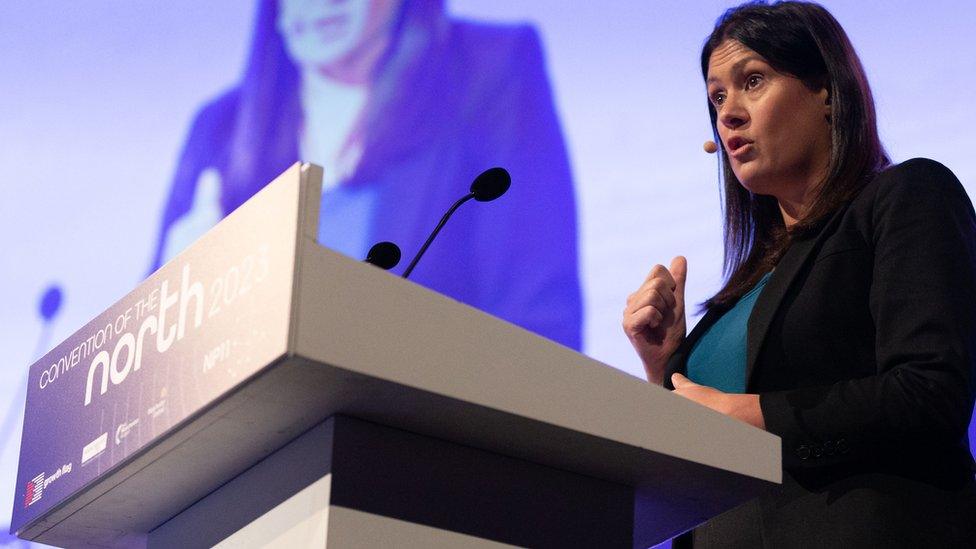
Ms Nandy told the convention the UK was in a "national malaise" and had a "broken" political system
Earlier, the Northern mayors joined together to call on the government to scrap the current competitive bidding system for levelling up funding.
The government recently announced the latest tranche of levelling up funding, but some areas complained they had not received a fair share.
Greater Manchester's Andy Burnham said hard-wiring levelling up into UK law "would move us away from policy by press release and start to tackle the unequal living standards we have in our country".
"Our own history has shown us that, too often, the north struggles to get to the top of the government's to-do list - whichever political party is in charge," he said.
North of Tyne's Jamie Driscoll added that the government must "bin the beauty pageant of competitive bidding between councils".
"We need to replace it with a new social settlement that finally proves to the apprentice in Blyth that they are just as important to the future of this country as the graduate in Kensington," he said.
Oliver Coppard, who represents South Yorkshire, said the current disparities were unacceptable.
"If you live in Rotherham you're likely to die five years earlier than if you live in Richmond. If you live in Barnsley you're paid £600 less a month than if you live in Berkshire," he said.
The West Midlands' Conservative mayor Andy Street has previously called for an end to Whitehall's "broken begging bowl culture", while Prime Minister Rishi Sunak defended the latest allocation of grants and said the North received the most in terms of funding per person.

Why not follow BBC North West on Facebook, external, Twitter, external and Instagram, external? You can also send story ideas to northwest.newsonline@bbc.co.uk
- Published15 March 2024
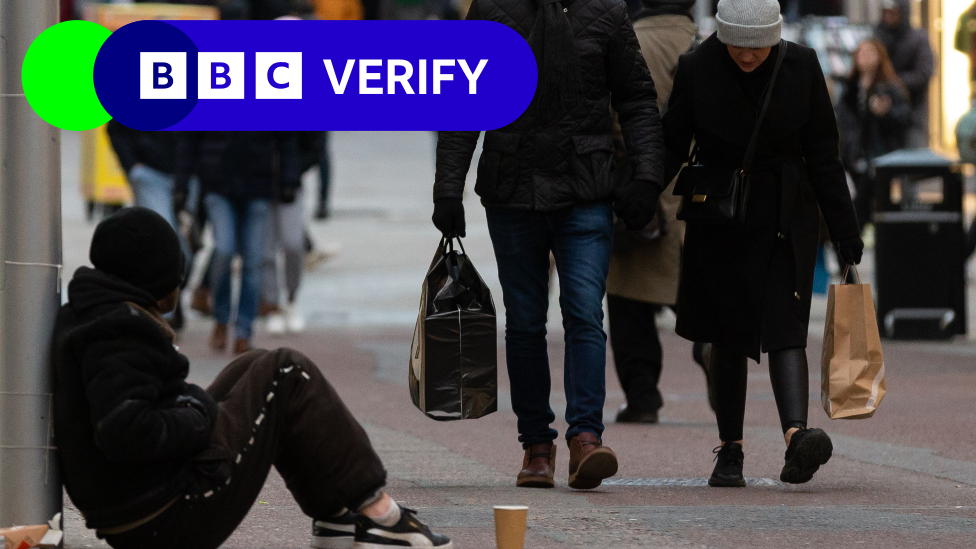
- Published19 January 2023
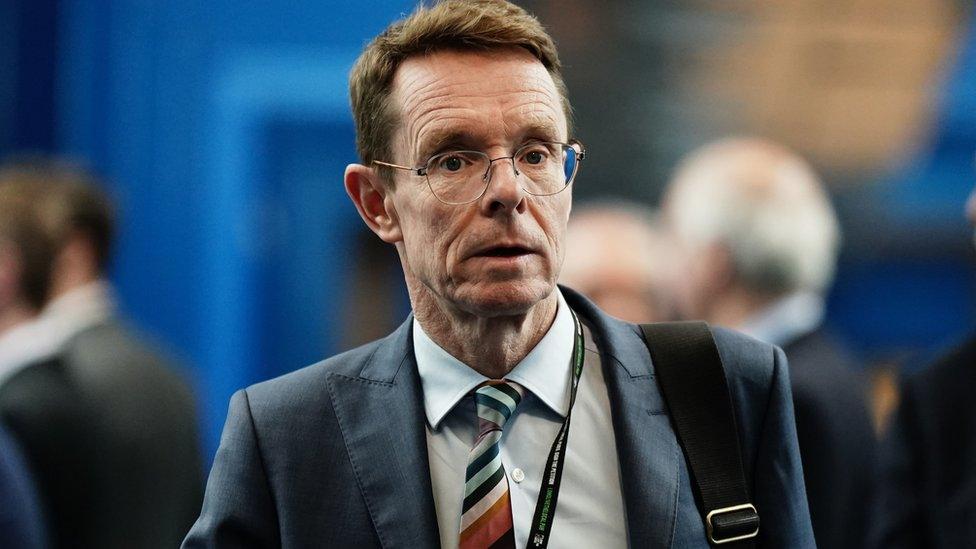
- Published19 January 2023
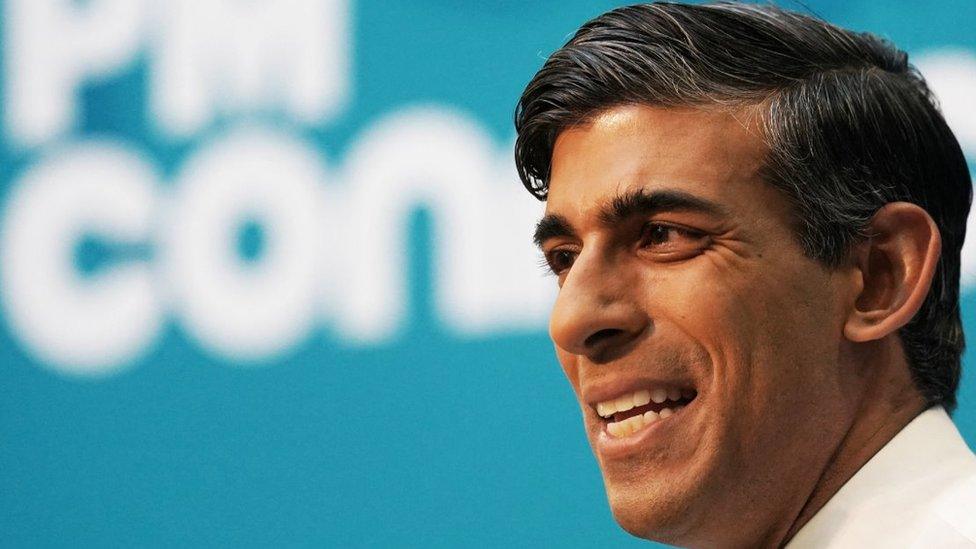
- Published19 January 2023
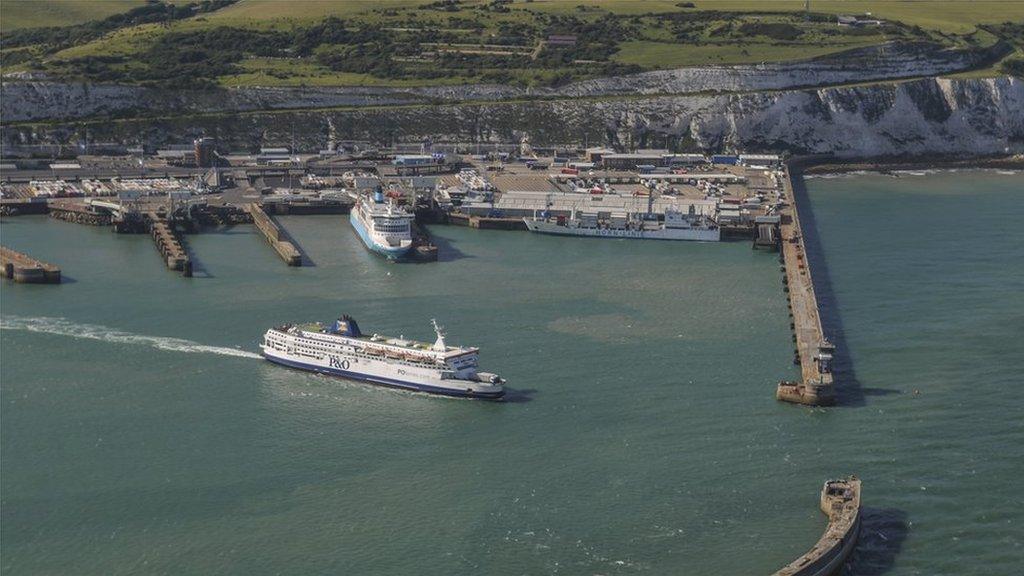
- Published18 January 2023

- Published18 January 2023
